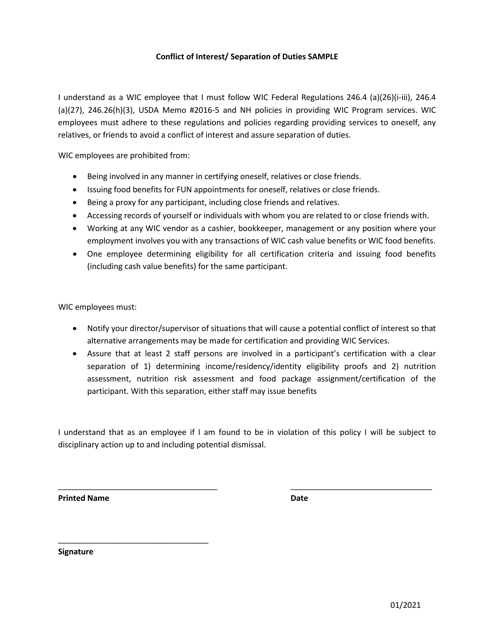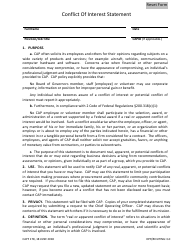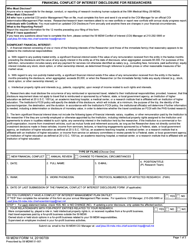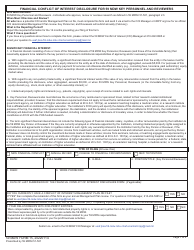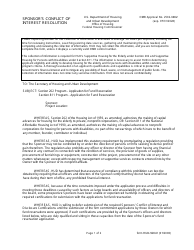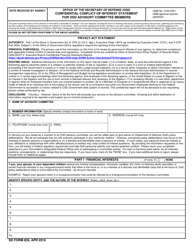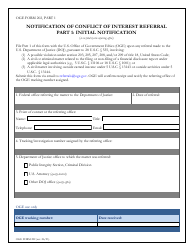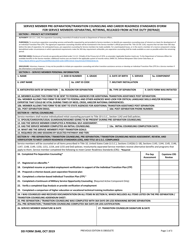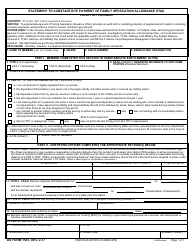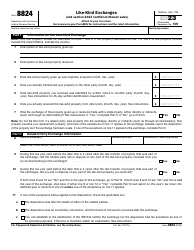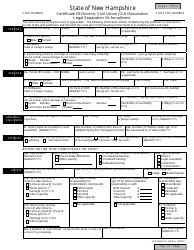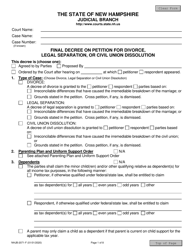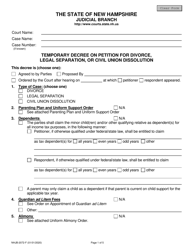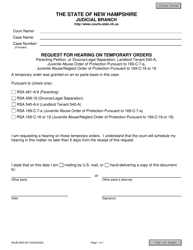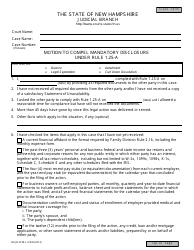Conflict of Interest / Separation of Duties Sample - New Hampshire
Conflict of Interest/Separation of Duties Sample is a legal document that was released by the New Hampshire Department of Health and Human Services - a government authority operating within New Hampshire.
FAQ
Q: What is a conflict of interest?
A: A conflict of interest occurs when someone's personal interests or loyalties are at odds with their professional responsibilities.
Q: What is separation of duties?
A: Separation of duties is the principle that different tasks and responsibilities should be handled by different individuals to minimize the risk of fraud or errors.
Q: Why is conflict of interest important to address?
A: Addressing conflicts of interest is important to ensure fair and impartial decision-making and to prevent potential abuse of power.
Q: What are some examples of conflicts of interest?
A: Examples of conflicts of interest include financial interests, personal relationships, and outside affiliations that may compromise impartiality or objectivity.
Q: What is the purpose of separation of duties?
A: The purpose of separation of duties is to reduce the risk of collusion, fraud, and errors by ensuring that no single individual has complete control over a process or transaction.
Q: How can conflicts of interest be managed or mitigated?
A: Conflicts of interest can be managed or mitigated through disclosure, recusal, establishing ethical guidelines, and implementing oversight mechanisms.
Q: What are the benefits of implementing separation of duties?
A: Implementing separation of duties helps to increase accountability, detect and prevent errors or fraud, and enhance the overall integrity of an organization's processes.
Q: Are conflicts of interest and separation of duties applicable to all organizations?
A: Yes, conflicts of interest and separation of duties are principles that apply to both private and public sector organizations.
Q: Is there any legislation in place to address conflicts of interest and separation of duties in New Hampshire?
A: Yes, New Hampshire has legislation and regulations that address conflicts of interest and separation of duties, such as the New Hampshire Code of Administrative Rules.
Q: Who is responsible for enforcing conflicts of interest and separation of duties in New Hampshire?
A: In New Hampshire, various state agencies and regulatory bodies are responsible for enforcing conflicts of interest and separation of duties in their respective jurisdictions.
Form Details:
- Released on January 1, 2021;
- The latest edition currently provided by the New Hampshire Department of Health and Human Services;
- Ready to use and print;
- Easy to customize;
- Compatible with most PDF-viewing applications;
- Fill out the form in our online filing application.
Download a printable version of the form by clicking the link below or browse more documents and templates provided by the New Hampshire Department of Health and Human Services.
